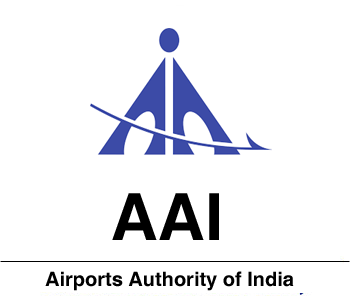(AAI) Airports Authority of India - Exam Syllabus (Manager - Technical)

(AAI) Airports Authority of India - Exam Syllabus (Manager - Technical)
Part-A
General Knowledge, General Intelligence, General Aptitude, English etc.
Weightage 50%
Part-B
Questions on subjects relating to educational qualifications.
Weightage 50%
1. APPLIED MECHANICS AND DESIGN
-
Engineering Mechanics: Free body diagrams and equilibrium trusses and frames; virtual work; kinematics and dynamics of particles and of rigid bodies in plane motion, including impulse and momentum (linear and angular) and energy formulations; impact.
-
Strength of Materials: Stress and strain, stress-strain relationship and elastic constants, Mohr’s circle for plane stress and plane strain, thin cylinders; shear force and bending moment diagrams; bending and shear stresses; deflection of beams; torsion of circular shafts; Euler’s theory of columns; strain energy methods; thermal stresses.
-
Theory of Machines: Displacement, velocity and acceleration analysis of plane mechanisms; dynamic analysis of slider-crank mechanism; gear trains; flywheels.
-
Vibrations: Free and forced vibration of single degree of freedom systems; effect of damping; vibration isolation, resonance, critical speeds of shafts.
-
Design: Design of static and dynamic loading; failure theories; fatigue strength and the S-N diagram: principles of design of machine elements such as bolted riveted and welded joints, shafts, spur gears, rolling and sliding contact bearings, brakes and clutches.
2. FLUID MECHANICS AND THERMAL SCIENCES
-
Fluid Mechanics: Fluid properties; fluid statics, manometry, buoyancy; control-volume analysis of mass, momentum and energy; fluid acceleration; differential equations of continuity and momentum; Bernoulli’s equation; viscous flow of incompressible fluids; boundary layer; elementary turbulent flow; flow through pipes, head losses in pipes, bends, etc.
-
Heat Transfer: Modes of heat transfer; one dimensional heat conduction, resistance concept, electrical analogy, unsteady heat conduction, fins; dimensionless parameters in free and forced convective heat transfer, various correlations for heat transfer in flow over flat plates and through pipes; thermal boundary layer; effect of turbulence; radiative heat transfer, black and grey surfaces, shape factors, network analysis; heat exchanger performance, LMTD ad NTU methods.
-
Thermodynamics: Zeroth, First and Second laws of thermodynamics; thermodynamic system and processes; Carnot cycle, irreversibility and availability; behavior of ideal and real gases; properties of pure substances, calculation of work and heat in ideal processes; analysis of thermodynamic cycles related to energy conversion.
-
Applications: Power Engineering: Steam Tables, Rankine, Brayton cycles with regeneration and reheat; I.C. Engines: airstandard Otto, Diesel cycles. Refrigeration and air-conditioning: Vapour refrigeration cycle, heat pumps, gas refrigeration, Reverse Brayton cycle; moist air psychometric chart, basic psychometric process, petrol and diesel engines, automatic transmission, centrifugal pumps, application of IT in automobiles.
MANUFACTURING AND INDUSTRIAL ENGINEERING
-
Engineering Materials: Structure and properties of engineering materials, heat treatment, stress-strain diagrams for engineering materials.
-
Metal Casting: Design of patterns, moulds and cores; solidification and cooling; riser and gating design, design considerations.
-
Joining: Physics of welding, brazing and soldering; adhesive bonding; design considerations in welding.
-
Machining and Machine Tool Operations: Mechanics of machining, single and multi-point cutting tools, tool geometry and materials, tool life and wear; economics of machining; principles of non-traditional machining processes; principles of work holding, principles of design of jigs and fixtures.
-
Metrology and Inspection: Limits, fits and tolerances, linear and angular measurements; comparators; gauge design; interferometry; form and finish measurement; alignment and testing methods; tolerance analysis in manufacturing and assembly.
-
Inventory Control: Deterministic and probabilistic models; safety stock inventory control systems.
-
Maintenance Management.
